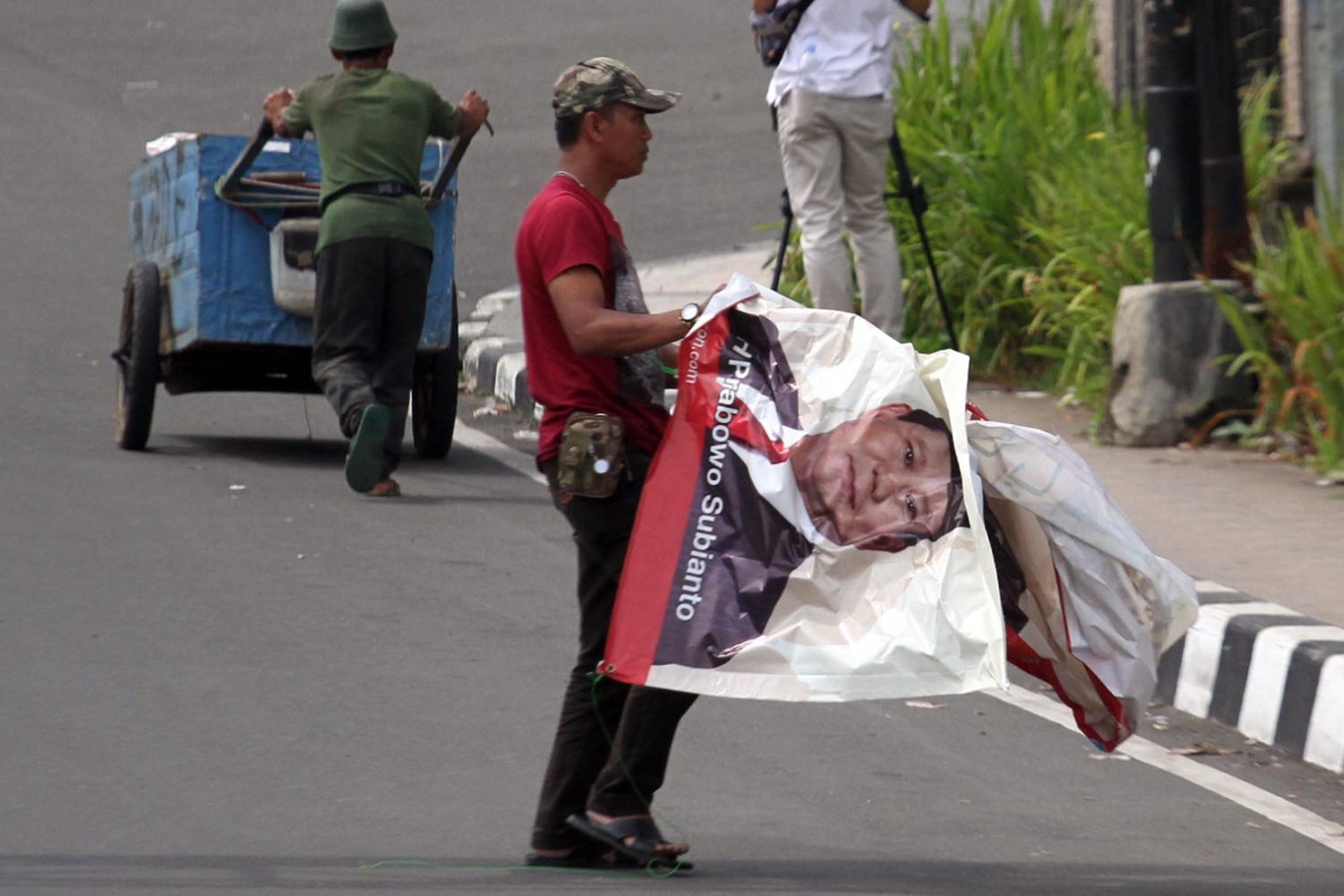Popular Reads
Top Results
Can't find what you're looking for?
View all search resultsPopular Reads
Top Results
Can't find what you're looking for?
View all search resultsRI democracy has deteriorated over past five years: Scholars
Experts assessing Indonesia's democratic jouney have bemoaned an "elite-led assault on democratic institution" over the past few years.
Change text size
Gift Premium Articles
to Anyone
E
xperts and scholars gathered in a forum to assess the development of Indonesia's democracy have concluded that, over the past five years, which includes the first term of President Joko "Jokowi" Widodo’s administration, the country's democracy has deteriorated at an alarming rate thanks to an "elite-led assault on democratic institution."
The experts, who study Indonesian politics and hail from overseas research centers and universities, said that, although Indonesia deserved praise for its practice of liberal democracy, registering a quality higher than that of India and only lagging behind countries in Northeast Asia, like Japan and South Korea, it had stagnated in recent years and in fact had begun to regress due to efforts taken by members of the political elite to sabotage democratic institutions.
Scholars Eve Warburton of the Asia Research Institute, National University of Singapore, and Thomas Power from the Department of Indonesian Studies, University of Sydney, said that the full-on assault on democratic institutions took place at the end of the last term of president Susilo Bambang Yudhoyono in 2014, right at the beginning of the first term of President Joko "Jokowi" Widodo.
"In 2014, a consensus emerged that, although reforms had ground to a halt, although democracy was considered stable and when Jokowi was elected he was expected to protect that status quo... the past five years have seen mounting evidence that democracy is eroding at a pace not too many people had predicted," Power said on Tuesday in a discussion to mark the virtual launch of the book Democracy in Indonesia: From Stagnation to Regression?
Power said that the assault on democratic institutions was not a plot hatched by the political elite, but instead was merely an extension of what he called "self-maximization."
He said that the newly-published book outlined multiple cases of elites sabotaging and undermining political institutions to meet their needs.
In the book, a chapter by Australian National University (ANU) scholar Marcus Meitzner, for instance, documents efforts taken by elites to maintain control of political parties, which consequently blunted their effectiveness in carrying out key functions of interest aggregation and articulating demands from voters.
A chapter by fellow ANU scholar Ross Tapsell, meanwhile, exposes how the media have been compromised by their owners' support and participation in the government, resulting in friendly coverage of the regime they backed.
"The media today is less diverse and increasingly beholden to oligarchs and subject to growing government influence," Tapsell wrote in the book.
Yet, it was only in the past five years that the political elites had begun to make a direct assault on the country's democratic institutions. "In this intra-elite politicking, the political elites are turning their attention toward the institutions of democracy themselves and very overtly undermining and sabotaging those institutions," Power said.
Some of the elite-led efforts to undermine democracy had materialized in the weakening of the Corruption Eradication Commission (KPK), the plan to amend the Regional Autonomy Law which could bring back power to the central government and the wholesale attack on civil liberties, including more prosecution of government critics and a heavy-handed crackdown on student protests last year.
Warburton said that, while political and bureaucratic elites could be blamed for their assault on Indonesian democracy, the threat for democratic norms also came from below; from grassroots, vigilante organizations and civil society groups promoting illiberal values.
In one chapter of the book, State University of Jakarta lecturer Abdil Mughis Mudhoffir exposed the role of the country's largest Muslim organization, Nahdlatul Ulama (NU), in working as an agent of the government to support any government attempts to deal with perceived threats from Islamist groups to the point when it supported draconian regulation like the controversial regulation in lieu of law (Perppu) to ban Islamist outfit Hizbut Tahrir Indonesia.
And, coupled with draconian measures to silence government critics, Warburton said that it had become more difficult to find room for resistance in today's democracy in Indonesia. "It is harder to locate the source of resistance," Warburton said.
Allen Hicken, a political science professor from the University of Michigan who contributed a chapter to the book, however, expressed praise for how far Indonesia had progressed in its democracy.
"In Southeast Asia, there's no other country that I would trade places with. Indonesia is better than any other country in Southeast Asia, and along with Timor Leste, Indonesia is now unquestionably the most democratic country in the region," Hicken said.










